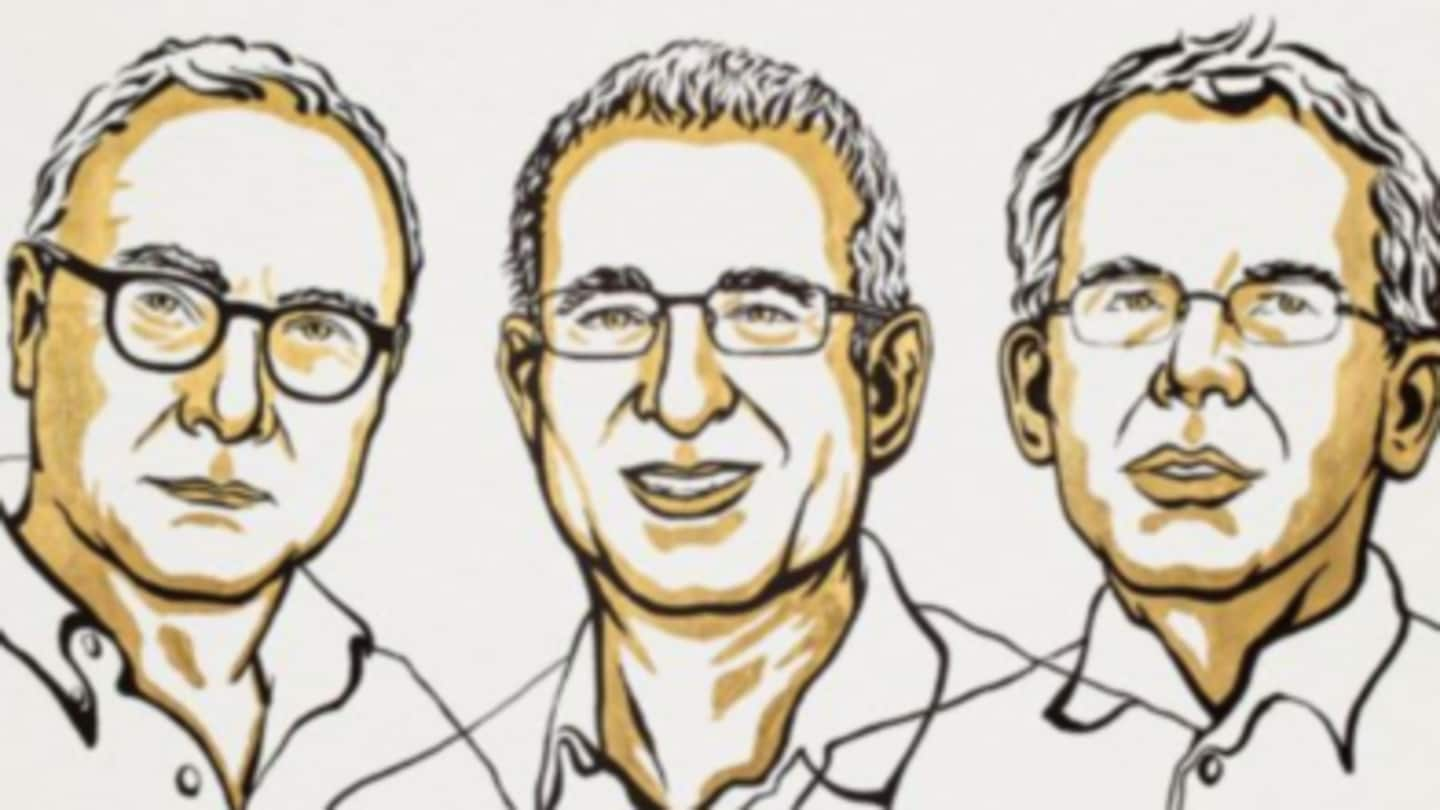
Card, Angrist, and Imbens win 2021 Nobel Prize in Economics
What's the story
David Card, Joshua D. Angrist, and Guido W. Imbens won the 2021 Nobel Prize in Economics, the Royal Swedish Academy of Sciences announced on Monday. One-half of the prize was awarded to Card, while the other half jointly went to Angrist and Imbens. Notably, Monday's announcement marked the end of the 2021 Nobel Prizes. Here are more details.
Details
'Laureates provided us with new insights about labor market'
While announcing the honors, the Nobel Committee said that Card was being awarded "for his empirical contributions to labor economics." Angrist and Imbens were jointly awarded "for their methodological contributions to the analysis of causal relationships," it said. "This year's Laureates...have provided us with new insights about the labor market and shown what conclusions about cause and effect can be drawn from natural experiments."
Works
What were their works?
Talking about this year's laureates, the Nobel Committee said their works have shown that it is possible to determine "cause and effect" in social sciences "using natural experiments." "Using natural experiments, David Card has analyzed the labor market effects of minimum wages, immigration, and education," it said. Similarly, Angrist and Imbens solved the "methodological problem" of interpreting natural experiments.
David Card
What did Card's work show?
David Card was born in Guelph, Canada in 1956. He did his Ph.D. from Princeton University, United States of America. An economics professor at the University of California, Card's studies from the early 1990s showed that increasing the minimum wage does not necessarily lead to fewer jobs. Card's works, the Nobel Committee said, "challenged conventional wisdom, leading to new analyses and additional insights."
Angrist, Imbens
What did Angrist and Imbens contribute?
Angrist was born in Columbus, Ohio in 1960, and Imbens was born in Eindhoven, the Netherlands in 1963. Elaborating the difficulty in interpreting data from natural experiments, the Academy said that their works "radically changed" the approach of researchers. The duo's research, it said, demonstrated how "precise conclusions about cause and effect can be drawn from natural experiments."
Quote
Laureates' work great benefit to society: Chair of Prize Committee
Peter Fredriksson, chair of the Economic Sciences Prize Committee, said, "Card's studies of core questions for society and Angrist and Imbens' methodological contributions have shown that natural experiments are a rich source of knowledge. He further termed their work a "great benefit to society."